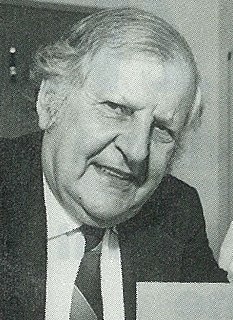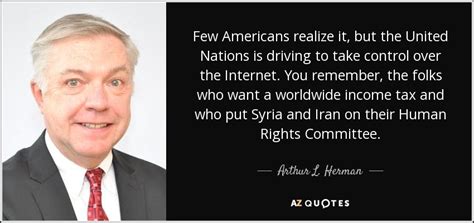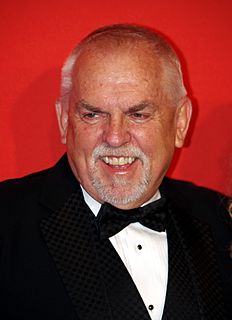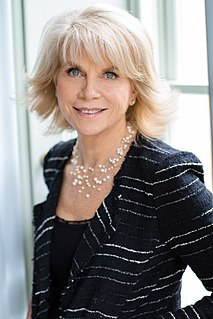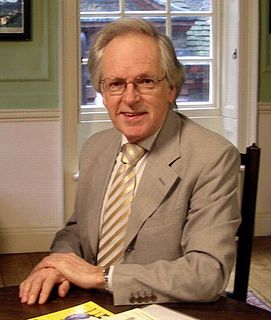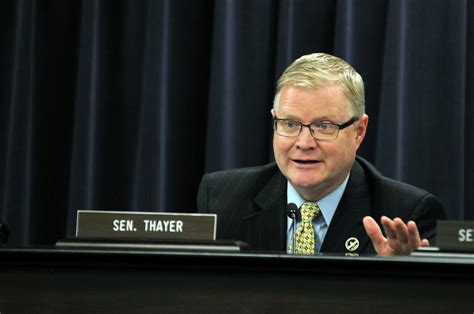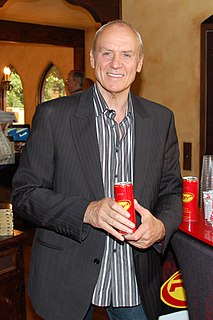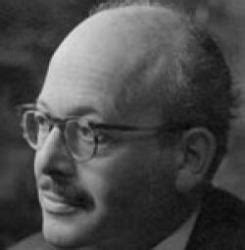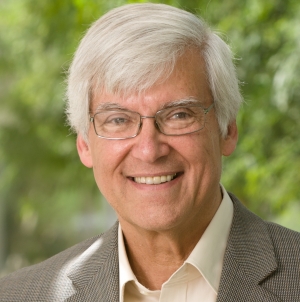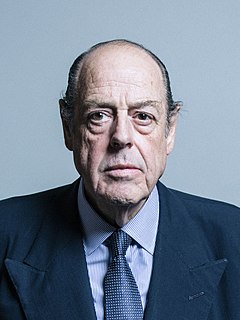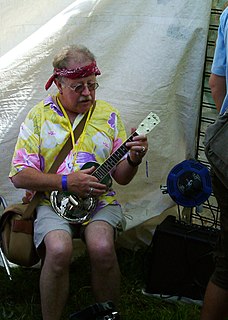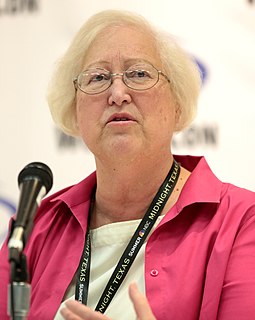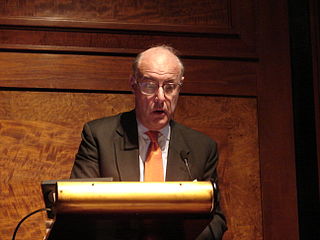Top 254 Churchill Quotes & Sayings - Page 4
Explore popular Churchill quotes.
Last updated on November 8, 2024.
Story is morally neutral. It can express profound truth or propaganda. The two greatest political storytellers of the 20th Century were Winston Churchill and Adolph Hitler. Because storytelling is a form of persuasive jujitsu, and because world is full of black belt storytellers, the corporate leader has to train both his offensive and defensive moves
No wonder that Churchill described this effort [the British codebreakers working at Bletchley Park] as "Britian"s secret weapon," a weapon far more effective than the buzz bombs and the rockets that Werner von Braun designed for a German victory, a weapon absolutely decisive, in the judgement of many, in winning the war for the Allies.
Winston Churchill used to say that we, Americans, try every other option before we finally do the right thing. After everything else is exhausted we eventually do the right thing and I think that's true for Congress as well. And it's important for Americans to remember that politics has always been messy.
To be sure, Kennedy did not discount the importance of words in rallying the nation to meet its foreign and domestic challenges. Winston Churchill's powerful exhortations during World War II set a standard he had long admired. Kennedy was hardly unmindful of how important a great inaugural address could be.
You have to remember that although Gandhi and Churchill only met physically once, their paths crossed again and crossed again all over the globe, from London and South Africa and India and back to London. In fact, I discovered that during the Boer War in 1899 they literally passed yards from each other on the battlefield.
One evening at Chequers the film was Oliver Twist. Rufus, as usual, had the best seat in the house, on his master's lap. At the point when Bill Sikes was about to drown his dog to put the police off his track, Churchill covered Rufus's eyes with his hand. He said, "Don't look now, dear. I'll tell you about it afterwards."
This Power Elite directly employs several millions of the country´s working force in its factories, offices and stores, controls many millions more by lending them the money to buy its products, and, through its ownership of the media of mass communication, influences the thoughts, the feelings and the actions of virtually everybody. To parody the words of W. Churchill, never have so many been manipulated so much by few.
I think on the efficiency level, not only the distribution level, capitalism is a flawed system. It probably has the same virtues as Churchill attributed to democracy: It's the worst system except for any other. And I think that's right, but it cannot be thought that some unmitigated belief in free markets is a cure even from the efficiency point of view.
I'd prefer people read about Churchill and how he wasn't overwhelmed by Nazi Germany. Amazing; that the morale of a country rested on one person's shoulders. Extraordinary people carried that country through its darkest hours; truly inspirational. I suppose that's my theme. Whether it's a biography or a movie; whether it's fictional or true, I'm inspired by people doing great things.
I've got more in common with a three-toed sloth than I have with Winston Churchill. There is no easy comparison with any modern politician. The more you read about him, the more completely amazed you are about what he did - his energy, his literary fecundity, his ability to work - just unbelievable energy.
Gandhi and Mandela and Churchill and JFK and Reagan and Thatcher and Sarkozy and Franklin and Washington set the tone to an incredible degree-their "personal style" was their "brand." ("It" starts with personal style of the tip-top leadership team. Sorry to be politically insensitive, but who would give a hoot about Tibet if it weren't for the look and style of the Dalai Lama?) Boss at any level: You're either on the "it" boat-or not.
Football is only once a week. NASCAR is once a week. Those sports are insanely popular. Horse racing is oversaturated. Unless tracks cut back to three days a week of full fields, a lot of people will really hurt down the road. Horse racing, to survive, has to go to that. Let's face it: Churchill Downs only does well on Derby Week.
The spring of 1942 was given over to a very impassioned, strategic debate about where we should first attack in counterpunching against the Germans and Italians. The British argued very persuasively on the part of Winston Churchill, prime minister, that this was a very green American Army, green soldiers, green commanders.
My toils in the quotation field have led me to formulate two or three laws about the way people use and abuse quotations. My first law is: When in doubt, ascribe all quotations to Bernard Shaw - which I don't mean to be taken literally, but as a general observation of the habit people have of attaching remarks to the nearest obvious speaker. Churchill, Wilde, Orson Welles and Alexander Woollcott are other useful figures upon whom to father remarks when you don't know who really said them.
I've benefited greatly from studying many effective people from history. Among those who've influenced me the most are Ronald Reagan, Theodore Roosevelt, and Winston Churchill. Each of the three altered history; each was self-created to a great extent; and each was a great student of history and leadership.
Churchill faced his own diminishing capabilities and increasing irrelevance by maintaining the sense that he was the only one who could solve whatever problem was before him. He was very often wrong, of course, but then he had spent so much of his life overcoming appalling mistakes, disasters, and rejections.
I came to the country [U.S] without speaking a word of English, without a penny, worked full time, 40 hours a week, went to school full time, opened my own small business, ended up being a multi-millionaire. If I can do it, without even knowing the language, anybody can do it. All it takes is determination, perseverance, and like Winston Churchill said: 'Never, never, never, never give up.'"
Ramesh Ponnuru and others say Obama is a conventional liberal. But conventional liberals don't come out for the release of the Lockerbie bomber. Conventional liberals don't return the bust of Winston Churchill from the Oval Office. Conventional liberals don't block oil drilling in America while subsidizing oil drilling in Brazil.
I believe in market economics. But to paraphrase Churchill - who said this about democracy and political regimes - a market economy might be the worst economic regime available, apart from the alternatives. I believe that people react to incentives, that incentives matter, and that prices reflect the way things should be allocated. But I also believe that market economies sometimes have market failures, and when these occur, there's a role for prudential - not excessive - regulation of the financial system.
As a Polish American, I grew up hearing the phrase 'nothing about us without us.' To Eastern Europeans, the vow is a painful reminder of how Joseph Stalin, Winston Churchill and Franklin D. Roosevelt carved up their small countries after World War II, placing them, against their will, under Soviet domination.
My books are a subject of much discussion. They pour from shelves onto tables, chairs and the floor, and Chaz observes that I haven't read many of them and I never will. You just never know. One day I may - need is the word I use - to read Finnegans Wake, the Icelandic sagas, Churchill's history of the Second World War, the complete Tintin in French, 47 novels by Simenon, and By Love Possessed.
In the olden days, a memoir was something written by Churchill and people like that, because they had a grand experience and considered it useful for future generations. And then it became what it became - a public purging in which other people have the chance to judge you and then forgive you, perhaps learning something from your sorry example.
When I meet a historian who cannot think that there have been great men, great men moreover in politics, I feel myself in the presence of a bad historian, and there are times when I incline to judge all historians by their opinion of Winston Churchill -- whether they can see that, no matter how much better the details, often damaging, of man and career become known, he still remains quite simply, a great man.
You know, the primary process itself is very confusing. But in the end, I guess I believe what Winston Churchill said, which is that democracy is the worst form of government except for all the others. And that phrase of his, which I always have previously thought to be kind of acute, more recently I've thought of it in this way, to say well, you know what, he's also saying it's the worst form of government - except for all of the others.
What is a war criminal? Was not war itself a crime against God and humanity, and, therefore, were not all those who sanctioned, engineered, and conducted wars, war criminals? War criminals are not confined to the Axis Powers alone. Roosevelt and Churchill are no less war criminals than Hitler and Mussolini. England, America and Russia have all of them got their hands dyed more or less red - not merely Germany and Japan.
Joe and I are still very aware of the fact that we live in a country where he criticised the government and lived another day. That trumps all. To paraphrase Churchill, democracy is the worst form of government apart from all the other forms of government. You constantly have to fight for it; you have to keep your government honest.
Churchill was a brilliant and inspiring rhetorician, but one of the first things he did as the head of the British nation was to put German Jews in jail. Tens of thousands of Jews - who had just been fortunate enough to get out from under Hitler only a few years before - spent the entire war in jail.
Although still viewed as lovely and alluring by many, Winston Churchill's mother shocked society when at 46 she married a man 20 years her junior. Most malicious of the many jibes launched at her was that of one lady who went about peering into perambulators. When asked her reason, she replied, "I am searching for my future husband."
In the closed circle of the war cabinet, pounded by terrible report after terrible report, there had been uncertainty about whether he could fend off the drift to exploring a deal with Hitler. The determination of the larger group trumped the tentativeness of the smaller, and Churchill fulfilled his role as leader by disentangling himself from defeatism--one of his singular achievements at the end of May 1940.
My friends, when I was young, were always older than I was, and I've always liked them. And I love old men and old ladies, really. But I've known more elderly men, like Max Beerbohm, like Beranard Berenson, like Somerset Maugham, Winston Churchill-I'd put him first, anyway-what they say is so wise and so good. They know what they're talking about.
I was on a walking tour of Oxford colleges once with a group of bored and unimpressable tourists. They yawned at Balliol's quad, T.E. Lawrence's and Churchill's portraits, and the blackboard Einstein wrote his E=mc2 on. Then the tour guide said, 'And this is the Bridge of Sighs, where Lord Peter proposed (in Latin) to Harriet,' and everyone suddenly came to life and began snapping pictures. Such is the power of books.
It is impossible not to be moved by the verve, courage and elan with Churchill attacked his last and ultimately invincible enemy, old age and infirmity. As in all his campaigns, he assailed his adversary with endless high spirits, expert advice, ample helpings of brandy and champagne, and the loving and long-suffering support of his wife.
Churchill decides from very early on that he will create a political position that is somehow above left and right, embodying the best points of both sides and thereby incarnating the will of the nation. He thinks of himself as a gigantic keystone in the arch, with all the lesser stones logically induced to support his position. He has a kind of semi-ideology to go with it - a leftish Toryism: imperialist, romantic, but on the side of the working man.
Franklin Roosevelt is one of the great leaders because he does get along with other people. He makes this huge effort. He's a very charming man. He tries to bring Joseph Stalin and Winston Churchill into this tripartite agreement to run the world. And he really was close. If he hadn't died in April of '45, the whole history would be different.
Churchill is the very type of a corrupt journalist. There is not a worse prostitute in politics. He himself has written that it'sunimaginable what can be done in war with the help of lies. He's an utterly amoral repulsive creature. I'm convinced that he has his place of refuge ready beyond the Atlantic. He obviously won't seek sanctuary in Canada. In Canada he'd be beaten up. He'll go to his friends the Yankees. As soon as this damnable winter is over, we'll remedy all that.

